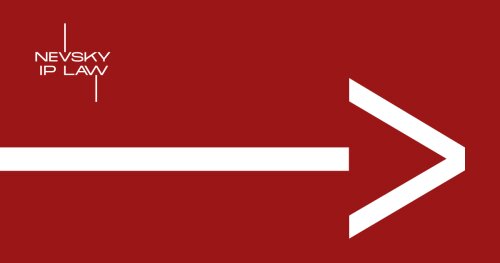Best Outsourcing Lawyers in Russia
Share your needs with us, get contacted by law firms.
Free. Takes 2 min.
Or refine your search by selecting a city:
List of the best lawyers in Russia
About Outsourcing Law in Russia
Outsourcing, the practice of delegating certain business processes or services to external companies, is a significant part of Russia's service-oriented sectors. Over the past two decades, Russia has emerged as a key player in the global outsourcing market, particularly in IT and business process outsourcing (BPO). The country's skilled workforce, competitive pricing, and technological expertise make it an attractive destination for companies seeking outsourcing solutions. However, outsourcing operations in Russia are governed by a complex legal framework that includes commercial, labor, tax, and data protection laws.
Why You May Need a Lawyer
Engaging in outsourcing transactions in Russia involves navigating a complex landscape of legal requirements and business regulations. Here are some common situations where legal assistance becomes necessary:
- Drafting and negotiating outsourcing contracts to ensure compliance with Russian laws.
- Understanding labor laws applicable to outsourcing, especially regarding employee rights and collective bargaining.
- Navigating tax obligations and seeking advice on efficient tax structuring for outsourcing agreements.
- Ensuring compliance with data protection regulations, including those relating to cross-border data transfers.
- Resolving disputes that may arise from outsourcing agreements, whether through negotiation, mediation, or litigation.
- Adhering to industry-specific regulations that may impact the outsourcing arrangement.
Local Laws Overview
Several key legal domains govern outsourcing in Russia:
- Contract Law: Outsourcing agreements must comply with the Civil Code of the Russian Federation, focusing on terms, deliverables, and risk allocation.
- Labor Law: Outsourcing can involve employment law aspects under the Labor Code, which protects workers' rights, wage agreements, and employment conditions.
- Taxation: The Russian Tax Code outlines the tax treatment of outsourcing services, including VAT, corporate taxes, and potential double taxation issues.
- Data Protection: The Federal Law on Personal Data (No. 152-FZ) regulates the handling of personal data, including processing, storing, and transferring data across borders.
- Intellectual Property: Outsourcing could involve the creation or use of IP, governed by the Russian Intellectual Property legislation.
Frequently Asked Questions
1. What is the primary legal consideration for outsourcing in Russia?
The primary legal consideration is ensuring that outsourcing contracts are compliant with the Russian Civil Code and adequately protect both parties' rights and obligations.
2. Who is responsible for employee rights in an outsourcing arrangement?
Responsibility for employee rights typically falls on the direct employer. However, outsourcing contracts should clearly delineate responsibilities regarding labor laws to avoid disputes.
3. Are there any restrictions on foreign companies outsourcing services in Russia?
While there are no blanket restrictions, foreign entities must comply with Russian legal requirements, especially if the outsourcing involves handling personal data or is in sectors where foreign investment is restricted.
4. How do tax laws impact outsourcing in Russia?
Tax laws are crucial as they affect the pricing and profitability of outsourcing agreements. Both VAT and income tax considerations need to be factored in.
5. What are the data transfer requirements for outsourcing involving international data?
Cross-border data transfer regulations require compliance with Federal Law on Personal Data, which may demand data localization or obtainment of consent.
6. Can outsourcing lead to intellectual property issues?
Yes, particularly if the outsourced services involve the creation of IP. Contracts should clearly address IP ownership and usage rights to prevent disputes.
7. What should be included in an outsourcing agreement?
An outsourcing agreement should define the scope of services, performance metrics, data protection obligations, liability clauses, and termination conditions.
8. Is there a typical duration for outsourcing contracts in Russia?
While there is no typical duration, contracts should be long enough to cover the intended scope of work but flexible to adjust to changing circumstances.
9. How can disputes in outsourcing be resolved?
Disputes can be resolved through various mechanisms: negotiation, mediation, arbitration, or, if necessary, litigation in Russian courts.
10. Are there special rules for outsourcing in specific industries?
Yes, certain industries like finance, healthcare, and defense may have specific regulatory requirements due to the nature of the services involved.
Additional Resources
For further assistance, consider consulting the following resources:
- The Russian Chamber of Commerce and Industry - Provides support and information regarding business operations in Russia.
- Federal Tax Service of Russia - Offers guidelines and assistance on taxation matters.
- Roskomnadzor - The federal service responsible for overseeing data protection and personal data regulations.
- The Russian Ministry of Labor and Social Protection - Useful for understanding labor rights and obligations.
- Professional legal organizations specializing in commercial and business law in Russia.
Next Steps
If you need legal assistance in outsourcing, consider the following steps:
- Conduct a preliminary assessment of your outsourcing needs and any potential legal implications.
- Consult with a legal expert or a law firm specializing in Russian commercial and outsourcing law.
- Ensure that all agreements are thoroughly reviewed to comply with Russian laws and protect your interests.
- Stay informed about any legal changes that may affect your outsourcing arrangements.
- Join relevant industry and legal networks to stay connected with recent developments and shared experiences.
Lawzana helps you find the best lawyers and law firms in Russia through a curated and pre-screened list of qualified legal professionals. Our platform offers rankings and detailed profiles of attorneys and law firms, allowing you to compare based on practice areas, including Outsourcing, experience, and client feedback.
Each profile includes a description of the firm's areas of practice, client reviews, team members and partners, year of establishment, spoken languages, office locations, contact information, social media presence, and any published articles or resources. Most firms on our platform speak English and are experienced in both local and international legal matters.
Get a quote from top-rated law firms in Russia — quickly, securely, and without unnecessary hassle.
Disclaimer:
The information provided on this page is for general informational purposes only and does not constitute legal advice. While we strive to ensure the accuracy and relevance of the content, legal information may change over time, and interpretations of the law can vary. You should always consult with a qualified legal professional for advice specific to your situation.
We disclaim all liability for actions taken or not taken based on the content of this page. If you believe any information is incorrect or outdated, please contact us, and we will review and update it where appropriate.
Browse outsourcing law firms by city in Russia
Refine your search by selecting a city.















